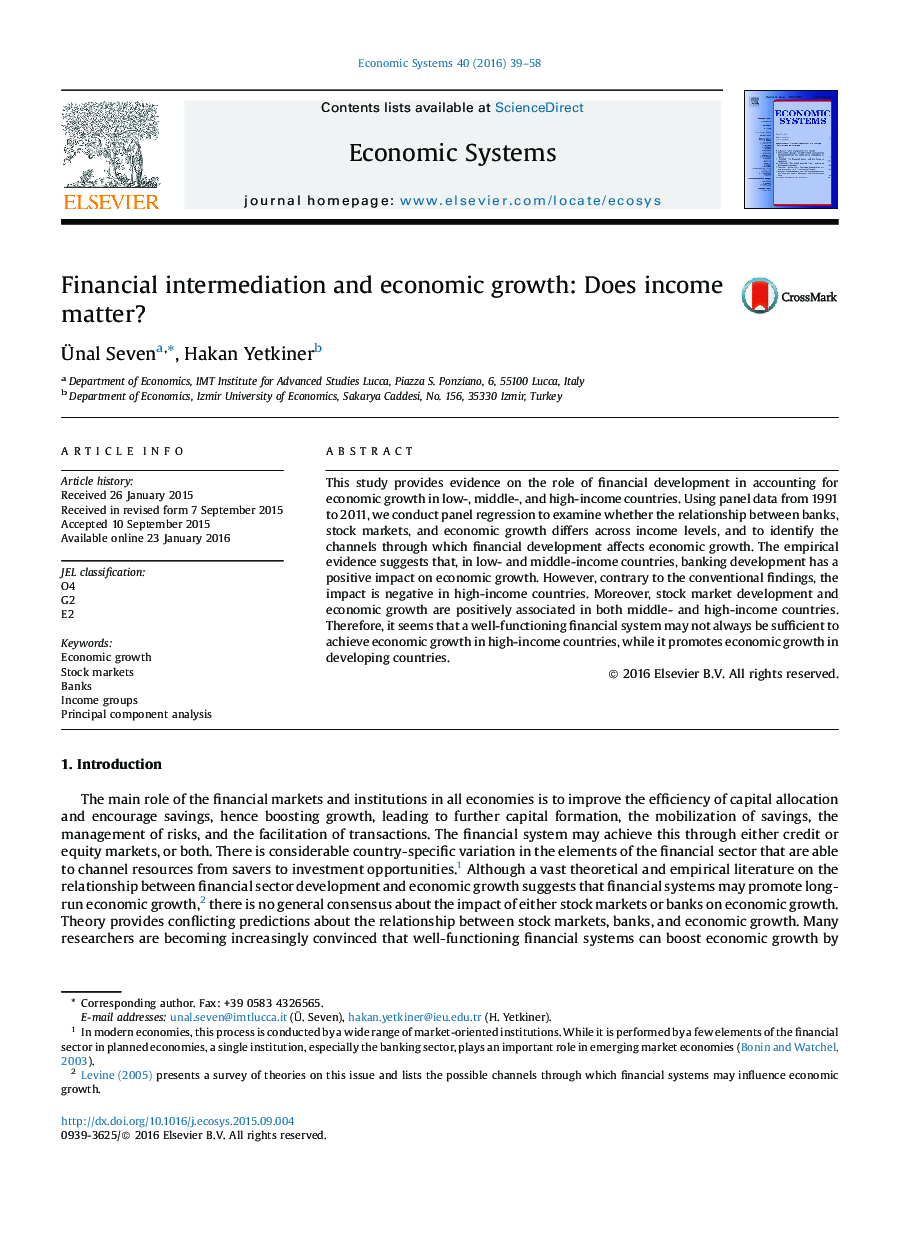| Article ID | Journal | Published Year | Pages | File Type |
|---|---|---|---|---|
| 5056254 | Economic Systems | 2016 | 20 Pages |
â¢The relationship between financial development and growth is examined using data for 146 economies over the years 1991-2011.â¢The paper distinguishes between high-, middle-, and low-income countries, as well as between banks, stock markets, and overall financial development.â¢We employ principal component analysis to construct satisfactory measures of financial development.â¢We find that financial development may not always promote growth.â¢This result runs contrary to the existing conclusions.
This study provides evidence on the role of financial development in accounting for economic growth in low-, middle-, and high-income countries. Using panel data from 1991 to 2011, we conduct panel regression to examine whether the relationship between banks, stock markets, and economic growth differs across income levels, and to identify the channels through which financial development affects economic growth. The empirical evidence suggests that, in low- and middle-income countries, banking development has a positive impact on economic growth. However, contrary to the conventional findings, the impact is negative in high-income countries. Moreover, stock market development and economic growth are positively associated in both middle- and high-income countries. Therefore, it seems that a well-functioning financial system may not always be sufficient to achieve economic growth in high-income countries, while it promotes economic growth in developing countries.
